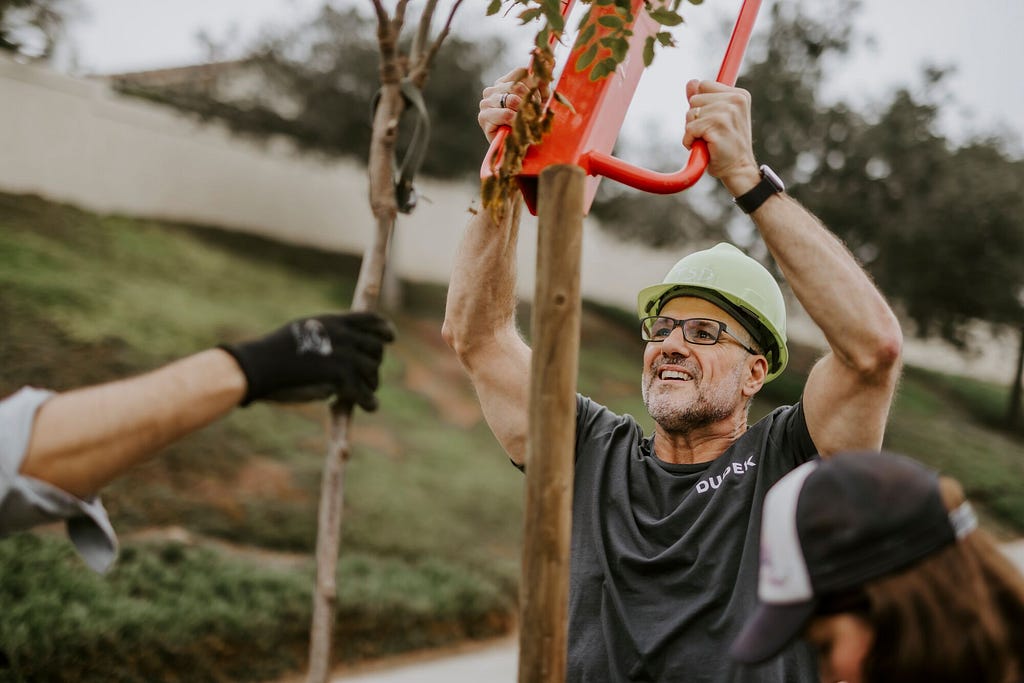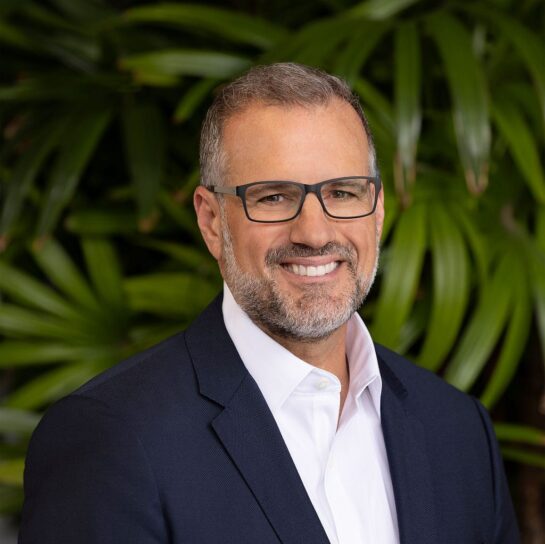An Interview With Chad Silverstein
Sustainability and Strategy: Active management strategies, including capital infusion, managing repurchase liabilities, and strategic decisions regarding share value management, are essential for sustaining an ESOP.
The global pandemic has forever altered the landscape of sales, propelling us into the era of remote selling. Today, businesses and sales professionals face the challenge of connecting with clients and closing deals without the traditional in-person interactions. Mastering the art of remote selling has become not just an advantage but a necessity. From leveraging technology and digital tools to building trust and rapport over virtual platforms, the skills required for effective remote selling are evolving. I had the pleasure of interviewing Joe Monaco.
Leveraging 37 years in environmental management, Joe Monaco has navigated roles in public and private sector planning and regulatory compliance, with a focus on consulting. Mr. Monaco has been with Dudek for 25 years and currently serves as President and CEO where he leads a team of engineers, planners, and scientists, delivering top-tier advice and solutions to clients. Mr. Monaco’s strategic guidance has been pivotal in driving Dudek’s expansion across various markets and geographies, solidifying its reputation as a leader in environmental consulting.
Thank you so much for joining us in this interview series! Before we dive in, our readers would love to “get to know you” a little bit about you. Can you tell us about your ‘backstory’ and how you got started?
I have spent the past 37 years in the field of environmental management, serving in both public and private sector planning and environmental regulatory compliance roles. Most of my career has been in consulting, including the past 25 years at Dudek, where I currently serve as President and CEO. At Dudek, we provide clients with expert advice and work products from our professional engineers, planners, and scientists. I have been fortunate to play a role in guiding the company’s growth and expansion across various market sectors and geographies.
How would you describe the culture at your company and what has been the biggest contributor?
Our culture at Dudek is the bedrock of our identity and operations. We have a proud history of employee ownership, peer accountability, and integrity, and it is those traits that shape our culture as it evolves over time. While we acknowledge that culture evolves as we grow and bring new people onto the team, our culture is anchored in the key tenets of our core values: trust and accountability. We believe that people rise to the occasion working in a trusting environment, and we’ve experienced the rewards of proactive Dudekians with freedom to act. Our culture thrives on a close adherence to our values, in both hiring, and in peer accountability every day.
How would you explain what an ESOP is to someone who has never heard of it before?
An Employee Stock Ownership Plan (ESOP) is a unique retirement plan, much like a 401(k), but with some key differences:
- No Cost to You: Unlike a 401(k), you don’t contribute money; the firm funds your ESOP account.
- Firm-Based Value: Your account balance reflects the value of the firm’s shares, not external stocks or bonds.
- Governed by a Trustee: All shares are held in a Trust managed by a Trustee.
- Direct Impact: Your contributions to the firm’s success influence share value.
Each year, your account grows through the company’s contributions and reallocated balances from employees who have left the company. Factors like hours worked, years of service, and compensation determine these contributions.
The value of your ESOP account depends on the company’s financial performance and future prospects. If the company’s stock value increases, so does your account balance, and vice versa.
As an ESOP member, your efforts directly impact the company’s success and, consequently, your retirement benefits.
Looking back, what was the catalyst that made you start thinking about transitioning to an ESOP?
Dudek became an ESOP company in 2003. Initially, the ESOP held a minority stake, while other employee shareholders owned the majority. In 2021, as the founder and other large shareholders prepared to retire, the Board decided that transitioning to a 100% ESOP-owned model was equitable for all employees. The firm’s substantial growth and consistent trajectory supported this decision.
Was there ever a point you doubted the ESOP route? What kept you motivated to push through those challenges?
Personally, I never doubted the ESOP route. In our industry, ownership models typically include publicly traded, private equity, closely held private ownership, and ESOP-owned structures. Being an ESOP-owned company aligns with our culture, emphasizing autonomy and independence. We value control over our destiny, and the ESOP framework provides a sustainable way to maintain that control.
ESOP companies often have a distinctive culture and operational approach. What makes your company stand out from others, thanks to the ESOP structure?
Our employee ownership model aligns us toward a common goal: delivering outstanding work for our clients. This culture of ownership means we take pride in our work and trust our colleagues to do the same. Mutual accountability and responsibility are key to our long-term success. When you invest energy and commitment into your work at Dudek, the firm invests in your growth and long-term wealth through our ESOP.

Great. Now, let’s dive into the heart of our interview. The transition to an ESOP involves a lot of challenges and opportunities to learn. Could you list the top “Five Things You Need to Successfully Leverage the Power of ESOPs”?
- Financial Realities: While ESOPs offer unique benefits, owners who wish to liquidate their investment must weigh the potential trade-offs, including lower personal returns compared to alternative exit strategies and the capital implications of the transition.
- Sustainability and Strategy: Active management strategies, including capital infusion, managing repurchase liabilities, and strategic decisions regarding share value management, are essential for sustaining an ESOP.
- Cultural Shift: Building an ownership culture is both a challenge and a benefit, requiring a shift in mindset among participants towards ownership and a focus on driving long-term business performance.
- Governance and Compliance: An ESOP-owned company has greater reporting and fiduciary responsibilities. Because ESOPs are sanctioned, tax-protected retirement plans by the federal government, they are subject to strict compliance requirements of the Employee Retirement Income Security Act (ERISA) and are overseen by the federal Department of Labor. In addition, the fiduciary responsibilities of the decision-makers of an ESOP firm are greater primarily due to the liability associated with the broad distribution of ownership, and the unique duties of ESOP company Boards of Directors.
- Disposition: While selling an ESOP company may not be top of mind for those considering transitioning to an ESOP, the unique challenges of selling an ESOP firm should also be considered at the forefront.
Financial literacy is crucial in an ESOP for employees to understand the value of their shares and how their actions impact the company’s success. What initiatives have you taken to educate your employees about financial aspects and the workings of the ESOP?
Our Strategic Plan includes specific actions centered around training to promote an ownership culture of high performance. We’ve implemented several initiatives, including:
- Webinars: We conduct webinars that delve into specific topics related to project performance and management. These sessions enhance employees’ understanding of financial aspects and their impact on the company.
- Monthly Financial Updates: Our regular all-hands virtual meetings, known as “Fridays @ Dudek,” include financial updates and educational segments. These sessions keep everyone informed about our financial health and ESOP workings.
- Financial Dashboards: Our dashboards provide performance metrics that can be sorted in various ways. Employees can track key indicators, fostering transparency and engagement.
- ERP System Upgrade: Recently, we transitioned to an improved version of our ERP system. This upgrade enhances our capabilities and user experience, making financial information more accessible.
- Transparent Reports: Weekly and monthly financial reports are available on Dudek’s intranet site. These reports offer insights into performance metrics, reinforcing our commitment to transparency.
Employee ownership often changes the dynamics of engagement and participation. How have you seen employee involvement evolve in decision-making and daily operations since transitioning to an ESOP?
We have seen such changes in different ways, from a heightened level of engagement on financial issues and firm performance, to a greater level of desire to participate in decision making. On that last point, I have seen recently where some employees are not entirely clear on governance, and how authority is allocated or delegated. We are currently working on ways to clarify how various decisions are made, and who makes them to bring greater clarity to that issue.
Company culture and the ability to attract top talent are critical factors for business success. How has adopting an ESOP model impacted your company culture and your approach to recruiting and retaining employees? Do you believe the ESOP model has given you an advantage in the labor market?
Yes, I do believe that being a 100% ESOP-owned company has given us advantages in recruitment and retention. I also believe that those advantages are both direct through the appeal of ownership, and indirect through how our ESOP ownership enhances our overall culture through independence and autonomy.
How can our readers further follow you or your company online?
You can learn more about Dudek at www.Dudek.com as well as on our social channels:
LinkedIn: https://www.linkedin.com/company/dudek
Instagram: https://www.instagram.com/dudekconsultants/
YouTube: https://www.youtube.com/channel/UCtWtTqEpMEGFDJGVgTMY9mA
This was great. Thank you so much for the time you spent sharing with us.
About the Interviewer: Chad Silverstein, a seasoned entrepreneur with over two decades of experience as the Founder and CEO of multiple companies. He launched Choice Recovery, Inc., a healthcare collection agency, while going to The Ohio State University, His team earned national recognition, twice being ranked as the #1 business to work for in Central Ohio. In 2018, Chad launched [re]start, a career development platform connecting thousands of individuals in collections with meaningful employment opportunities, He sold Choice Recovery on his 25th anniversary and in 2023, sold the majority interest in [re]start so he can focus his transition to Built to Lead as an Executive Leadership Coach. Learn more at www.chadsilverstein.com
Joe Monaco Of Dudek On Why ESOPs Are the Future of Business Succession was originally published in Authority Magazine on Medium, where people are continuing the conversation by highlighting and responding to this story.
